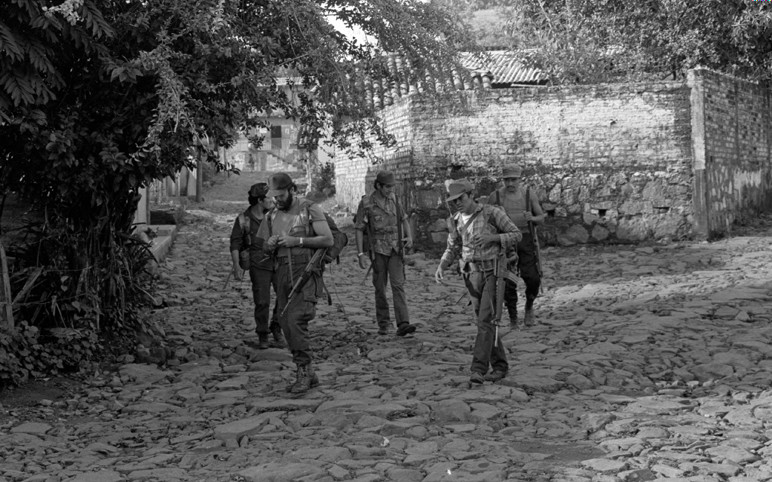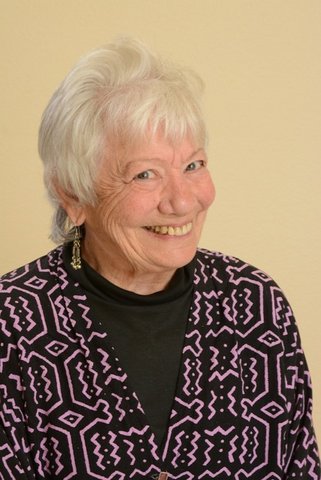The Best Paid Psychologist in America
Adrianne Aron
Packed between heavy covers, held tight by metal prongs choking it at the neck, its thickened middle crushed by a weight of rag-content stuff and its sides jabbed by twisty clips holding flimsy tags, a body lies inert, on an indoor table somewhere in the United States. The venue isn’t important: an immigration office, a criminal court, a tacky space in the warren of cubicles that wind through the American bureaucracy—this is only a body of information, after all; where it lies matters little.
A million words are tattooed all over that inert body, and at the foot of one of the trapped paper sheets is a signed form. What does it say? Written above the judge’s signature is a decision that will make somebody’s day or break somebody’s heart.
Will the judge have taken the time to read the five or six pages I wrote for that file, or will my effort to humanize this paperized person have been in vain?
The paper file tells the story of a life, including the time and place where it began, and how it unfolded through the years with or without a caring family; a supportive or hostile school or no school at all; a work history or a history of looking for work and not finding it; a residential history that reveals border crossings into unfamiliar neighborhoods, or cities, or even countries. Much can be learned by reading the numbers and words typed in the little boxes of a police report or a Homeland Security form, but much, too, is missing from the story. You may see a father’s name and the word deceased next to it, but it will not say that the boy was seven years old, and watching, when his father, a simple farmer, fell in a hail of soldiers’ bullets. In another file, you’ll see in bold print the number of a penal code violation, but you may have to hunt around for the IQ score that signifies mental retardation. In that thick body of information, when my own words add to the folder’s heft, it is because an attorney wanted to ensure that when the body got inspected, the psyche—a Greek word meaning soul—wouldn’t be overlooked. Sometimes, and these are for me very good times, the psychological report has a big influence on the judge’s decision.
Most psychologists who do forensic work trained for it. Not me. I was drafted into it by a tenacious lawyer who would not take No for an answer when I protested that I couldn’t help the client she was representing in an asylum case. She wanted me to examine the young man, to find something that would help the Immigration Judge believe his story. The last asylum client she’d represented, a 23 year old Salvadoran woman, had sat stiff in the witness chair, and without making a single grimace or shedding a single tear, had told how government soldiers burned the village to the ground and raped the women and girls, even little girls; how they’d killed the animals and shot her father. The judge got angry: “If all that really happened, you wouldn’t be reciting it like a laundry list.” It had to be a fabrication, he said; and he denied her claim for political asylum. From reports published by the U.S. State Department the judge had learned that Salvadoran citizens had nothing to fear from their government. It was the mid-1980s. The government of El Salvador was receiving billions of dollars in military aid from the United States. It was a friendly government.
The lawyer was convinced that this new client was telling the truth, but the young man talked in the same detached monotone, with the same calm facial expression, as the young woman who had been ordered deported to her treacherous homeland. Like her, he had trouble remembering names and dates. He kept confusing the date of his brother’s murder with the date his sister was last seen before she disappeared. He told the lawyer that he felt as if there was a short-circuit in his brain, because several times a day, and every night before falling asleep he imagined people were grabbing him or members of his family, violently, trying to kill them. After his brother’s assassination, he was afraid he’d be targeted, and he hid out in the mountains, terrified of being discovered. Like everybody on the run with death squads at their heels, he didn’t have documents to support his claim of what he’d been through. Only if the attorney could prove that he was telling the truth about the persecution he’d suffered in El Salvador, and his terror of returning, could he win his case for political asylum. Wouldn’t I see him? “You speak Spanish, you know what’s going on in Central America, you’re a psychologist. You’ve even been to El Salvador. If you can’t help him, who can?”
But how could I be of help? Psychologists don’t have some magical power to determine if a person is telling the truth. Why make this poor guy tell his story to someone who can’t be of help? Psychologists are not sworn to the Hippocratic Oath, but I felt a personal obligation to do no harm. Though I did not doubt that this man was afraid to return to his country, and earnestly hoped he would be given the assurance of safety that political asylum provides, I could see no point in needlessly putting him through the anguish of recounting these horrific events of his life.
The lawyer would not let it go. She kept insisting there was a chance a psychological evaluation could be helpful.
I resisted, protested, refused, demurred, and finally capitulated: I reluctantly consented to see her client.
Roberto Reyes had been a student leader at the University of El Salvador. As part of MERS, the national student association, he’d been involved in protests against the economic structures that kept 60% of the country’s wealth in the possession of a mere 2% of the population and forced millions to live in extreme poverty; hungry, without schools, without healthcare, without a future. The Salvadoran military, in its defense of the status quo and its zeal to wipe out dissent, went after young activists like his brother and his sister, like his fellow members of MERS, and ultimately, him. Narrowly escaping a roundup of his student group, Roberto spent two years in utter terror, in hiding, hunted like an animal. He finally made his way to the United States, to safety. Or so he thought. Soon after crossing the border he was caught by the dreaded Migra, the Immigration Service. After three months in Immigration detention, Roberto was bonded out and brought to Berkeley, California, where he was now living. Night and day, he was so tormented by memories of the past that he woke up from screaming nightmares to spend his waking hours distracted, fearful, withdrawn, and isolated, feeling life would never return to normal. I was able to document the presence of Post-traumatic Stress Disorder, a condition that was seldom observed in those days, except in soldiers who had been in combat. I was able to write a report about Roberto’s functioning that showed a direct correspondence between his psychological symptoms and his story of what he’d experienced in El Salvador—symptoms that would not have been present if those experiences had not occurred. I aimed to help the judge understand Roberto Reyes as a living being whose blood is chilled by the need to stand before Authority, and whose mind churns as it tries to process the pieces of a ravaged biography.
Citing the report as providing compelling evidence that Roberto was telling the truth and deserved protection, the judge granted him political asylum. It was the first time psychological expertise was given as testimony in a Central American asylum case. It saved his life! I was hooked.
As we who do liberation psychology like to say, in our line of work you don’t make a lot of money but you sure make a lot of friends. When human rights is the focus of your practice, most of your clients are people who have endured great trauma, and your kind words and human solidarity mean a great deal, as antidotes to the abuse visited upon them by others. They have heard the screeching explosions of artillery in the mountains and the creepy hush of death squads on the patio, the sizzle of hot grease spattered on their cheeks when a violent spouse slammed a frying pan in the kitchen, the whirr of the electric motor that ran the torture instrument at the army base. Paralyzed by fear, they have heard the words used to justify the pain they suffered: indio, faggot, bitch, terrorist, subversive, jihadist… They come from many places, speak many languages. Our job is to analyze their psychological condition so that somebody in a position of power—usually a judge or an asylum officer—will pause for fifteen or twenty minutes to pull from the great body of information the five or six pages we have written, and read them with some care, so that this frightened person whose fate is about to be decided will not be reduced to a bunch of Homeland Security documents or a rap sheet from a police file.
With political asylum and its promise of a safe environment, a refugee can feel secure enough to start rebuilding the life that was so brutally interrupted. Not everybody succeeds with that difficult project, and psychologists who conduct evaluations of survivors of human rights abuses seldom find out how the story ends. Did she recover from the trauma? Was he able to move on successfully with his life? Usually we are left to wonder. But in the summer of 2009, twenty-five years after Roberto Reyes’ victory in Immigration Court, I got lucky. I ran into him.
I was in San Francisco, at a street demonstration protesting the forced ouster of President Zelaya in Honduras, and there was Roberto, marching with other members of CARECEN, the Central American Resource Center. I was elated. It was beautiful to see him at a demonstration. He was asserting his right to protest, to stand up against injustice and oppression, and express solidarity with people trying to defend democratic processes. He had knotted a thread that had been cut by the Salvadoran military years before. I wanted to give him a hug. But I held back. I remembered how he couldn’t bear to have his name called, how it terrified him to be touched. “You’re looking great!” I exclaimed. He dropped his backpack on the sidewalk and gave me a huge Latino abrazo, a bear hug. “I’m almost fifty years old!” he beamed. I noticed he was speaking English. “And my son’s about to graduate from U.C. Berkeley!”
It was a cherished moment. I recalled that it was activist students at U.C. Berkeley who had rescued Roberto from immigration detention. They had heard about the Salvadoran student leader languishing at the place the refugees called El Corralón—The Corral. They’d raised money to bond him out, and he’d arrived in town alone and traumatized, speaking no more than a few words of English. Immigration wanted to deport him, and the U.S. State Department was furnishing the Salvadoran military with names of all the deportees. Armed soldiers would have been at the airport in San Salvador, waiting for him. Of the thousands of Salvadorans applying for political asylum in the United States in those days, 98% were being denied. A pushy lawyer made me see him, and the psychological report convinced the judge that asylum needed to be granted. And here he was, safely exercising the human right of free expression that had once almost cost him his life.
“Hombre, it’s your fault that I spent all these years doing human rights work and never made any money,” I teased. We fell into step together as the picket line turned the corner.
“But you know what?”
He smiled at me. “What?”
“Today,” I said, smiling back at that happy man, “you made me the best paid psychologist in America.”
Listen to the author read from “The Best Paid Psychologist in America”:
Provenance: Submission.

Adrianne Aron practices psychology in the San Francisco Bay Area, where she also writes and does occasional translations from Spanish. She is chief translator and co-editor of Ignacio Martín-Barȯ’s essays in WRITINGS FOR A LIBERATION PSYCHOLOGY (Harvard University Press), and translator (with Introduction) of Mario Benedetti’s acclaimed play on torture, PEDRO AND THE CAPTAIN (Cadmus Editions). A recipient of awards in both fiction and nonfiction, she often writes on the refugee experience. See www.adriannearon.com
“Guerrilla combatants in Perquín, El Salvador in 1990” by Linda Hess Miller is licensed under CC BY 3.0.


No Comments